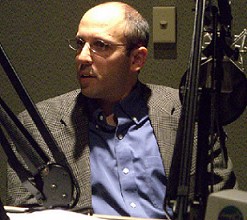When I was a 1L, the school told us that the copy center at the law school had class outlines for sale. There were dozens of outlines created by previous students available. For some classes they are a necessity, and for others, it’s just nice to have another person’s outline to compare to your own and to have another person’s take on the material.

Mysteriously, these outlines have disappeared from the copy center this semester, except for two “professor-approved†outlines. Apparently, Dean Berman didn’t like that an outline for his Civil Procedure class was available. It was over 100 pages long, and according to an email he sent to his students, it was almost verbatim what he said during his lectures. The rumor is he didn’t want this outline to be available because he thought students should create their own outlines. There was also another rumor that a different professor didn’t want students to have an outline for her class that clearly explained concepts because she liked it when students suffered.
I think this is probably Berman’s mental logic: “I benefited from making my own outlines from scratch without outside help, so no one else should be able to have external help from others’ notes.â€Â It doesn’t matter what Berman likes or doesn’t like. It’s about the students being able to learn the material. If having another information source is helpful, especially if they’re willing to pay the school extra to have it, then so be it! Just because the school doesn’t like it or encourage it in general, it doesn’t make it wrong.
Here’s the moronic part – outlines are widely available and easily passed from student to student. Student clubs have their own outline banks that they freely share with their members. Any student whose judgment is so bad as to assume a 50-page outline will substitute for an 800-page textbook and a semester’s worth of lectures, shouldn’t be in law school in the first place. Such assumptions only reflect the lack of confidence Dean Berman has in his students’ intellect and judgment. The only thing the school did was cut off a revenue stream. Given how much the school has had to raise tuition and class size, this seems like a really stupid thing to do.
And to top all of this off, the school didn’t think to inform the student body about this change. The outlines simply disappeared at the end of last semester. This lack of transparency makes me question what else the school might be hiding from students, its consumers and future donors.
Let me be clear, this is not a post demanding that the outlines be reinstated because I believe it’s an entitlement afforded to all law students. I simply mean to enumerate one more example of a poorly chosen policy and the law school’s consistent inability to effectively instate such overhauls. Not to mention the school’s now predictable attitude toward communicating with its students, that of don’t ask don’t tell.
And since I’m on my soapbox, I don’t think Berman should be teaching class. He has enough to do with raising money for the school. According to this year’s students, he frequently cancelled class due to his other job duties and made them up with marathon classes. I hear he’s actually a good teacher, but I don’t think he should be an instructor and an administrator. If I was one of his students, I would have been pissed.
Special thanks to my anonymous co-writer this week.
Related articles
- Law School Transparency Group Seeks Data from Law Schools (abovethelaw.com)
- How Law Schools are Ripping Off Students, Enron-Like (blogs.forbes.com)




